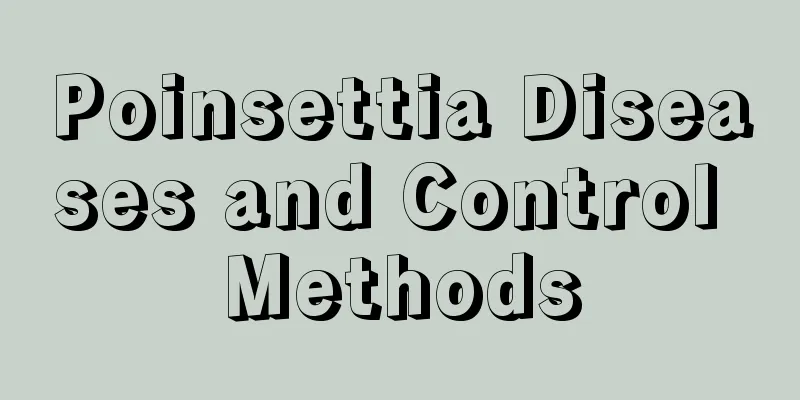Poinsettia Diseases and Control Methods

Poinsettia gray moldGray mold disease often occurs in winter, which is the season when flowers bloom. Once it encounters continuous rainy, humid and sunless weather, gray mold disease will be out of control. Brown spots appear on the leaves, branches, and inflorescences, spreading throughout the plant as the disease progresses. Therefore, especially in winter, strong maintenance and management are required to increase indoor temperature, enhance light transmittance and reduce humidity. Once diseased plants are found, immediately move them to a ventilated place and place them in the sun, which can achieve effective prevention and control effects. In addition, when the disease is serious, Bordeaux liquid can be sprayed for treatment. Poinsettia Root RotRoot rot usually occurs in hot seasons, but soil, watering and other factors can also induce this disease. Light brown spots can be seen on the roots of infected plants, but it is difficult to find symptoms above ground in the early stages. As the disease worsens, the lesions spread upward and the plant will gradually wither. In the later stage, the plant will die due to lack of water because the roots cannot absorb water. Strengthen maintenance at ordinary times, change the soil in time, loosen the soil frequently, and ensure that the roots have sufficient oxygen to breathe. In addition, during the maintenance process, the roots can be irrigated with disinfectant once a month to inhibit fungal growth. When the roots are rotten, remove the plant from the pot, cut off the rotten parts, and replant it. If the root rot is serious, just throw it away. Poinsettia leaf spotIt occurs more seriously in spring and summer, and the lesions mostly start to appear on old leaves. In the early stages, irregular spots appear on the leaves, which quickly expand and spread, causing the leaves to twist and dry out. If you find spots on the leaves, remove them immediately and throw them away. Clean up dead leaves regularly and keep the surface of the potting soil clean. When the disease is serious, spray pesticides. You can choose 1000 times solution of Benomyl and spray it once every 5 to 7 days. The condition will improve in 3 to 5 days. |
>>: Disease control of round-leaf arrowroot
Recommend
A top student born in the 90s, leased 20 acres of land to grow succulents, and achieved success in both love and career!
Meet succulents, love at first sight When I was a...
Poplar growth environment conditions and characteristics
Poplar growth environment conditions and requirem...
Cucumber high yield management method
Many cucumber growers have reported that the grow...
How to fertilize wood fragrance flowers
Fertilization method of wood fragrance flower: In...
How to propagate the variegated leaf ball orchid
1. Cutting propagation The most commonly used met...
How to slow down the growth of strawberry seedlings in balcony pots
Seedling treatment It is actually better to proce...
What should I do if the fan is too long?
reason Too much water: The Chinese hollyhock is a...
The Flower Language and Cultural Legends of Caragana
Flower language of Caragana The flower language o...
What is the best time to weed wheat before winter?
After wheat seedlings emerge, an important part o...
High-yield planting technology of edamame
Edamame is actually young soybeans . It is named ...
How to remedy the waterlogging of succulent plants (how to revive succulent plants if they show signs of waterlogging)
What is succulent water Nowadays, more and more p...
How to plant strawberry seeds, which month to sow (seed collection and germination)
1. Is it easy to plant? Strawberries are easy to ...
How to grow hydroponic anthurium in winter
1. Change the water Its roots are very lively and...
The difference between First Love and Flower Moon Night
1. Differences in plants First Love is a small to...
I bought 10 yuan worth of geraniums, and the flower bulbs bloomed for 2 months straight, filling up the balcony!
Geranium Flowering Period Nowadays, technology is...









